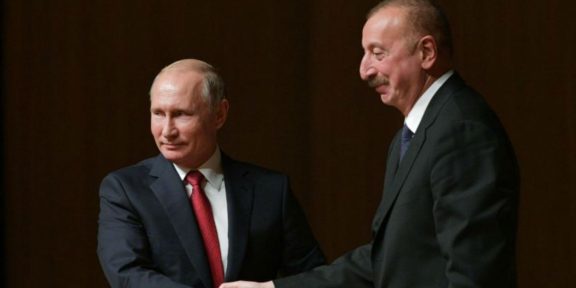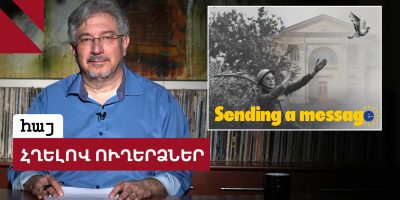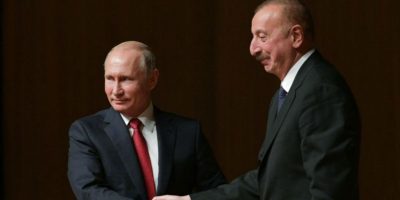 Agos, the Armenian bilingual weekly newspaper based in Istanbul, on the occasion of the 99th anniversary of the Armenian Genocide, published a series of letters written by well-known Armenians addressed to the Turkish people.
Agos, the Armenian bilingual weekly newspaper based in Istanbul, on the occasion of the 99th anniversary of the Armenian Genocide, published a series of letters written by well-known Armenians addressed to the Turkish people.
“To the people of Turkey, I am not asking for an apology. I would like an answer, however, to this question: What purpose does it serve to continue to deny dignity, equality and justice to the Armenians?” On the occasion of the 99th anniversary of the Armenian Genocide, Nancy Kricorian writes a moving letter to the Turkish people.
I am not asking for an apology, I would like an answer to my question
Let’s sit crooked and talk straight.
~Armenian proverb
Jesus says to forgive your enemies, but what they did to us I never can forgive.
~ Mariam Kodjababian Kricorian
A Palestinian friend of mine told this story. Years ago as a PLO negotiator, she suggested to her Israeli counterpart that an apology for what happened in 1948 would be a nice gesture. The Israeli asked, “You want us to say we are sorry?” She replied, “An apology would go a long way.” He said, “You want us to admit that Israel was born in sin, and this we cannot do.”
What nation state did not rise or profit from crime? Israel was founded upon the violent expulsion and dispossession of hundreds of thousands of Palestinians. The United States of America was built upon land theft, genocide, and the forced labor of chattel slaves. The founding of the modern Turkish Republic entailed the extermination and expulsion of Armenians, Assyrians, and Greeks, and the harsh repression of Kurds.
In order to justify these acts, the victims must first be made less than human in the popular imagination. After the fact, the story must be rewritten so that the despised, dispossessed, and murdered are said to have deserved their fates, and are made out, in fact, to be the perpetrators.
My grandmother, Mariam Kodjababian Kricorian, was from Mersin, Cilicia. She and her family were forced to leave their home in 1915. They were sent on a death march to the Syrian desert. Her parents and younger sisters died on the road. She and her brother were among 8,000 Armenian orphans in a camp at Ras al-Ain.
This was no an accident. This was not the collateral damage of war. This was part of a concerted campaign to solve what was called “The Armenian Question” by destroying the Armenians. The goal was not only to rid Turkey of its Armenian inhabitants, but was also to appropriate their homes, lands and other properties.
To the people of Turkey, I am not asking for an apology. I would like an answer, however, to this question: What purpose does it serve to continue to deny dignity, equality and justice to the Armenians?
Թուրքիայում լույս տեսնող «Ակօս» պարբերականում Հայոց ցեղասպանության 99-րդ տարելիցին ընդառաջ հրապարակվել էր Սփյուռքի 16 գործիչների նամակները՝ ուղղված թուրք ժողովրդին։ Ստորև ներկայացնում ենք գրող Նենսի Գրիգորյանի նամակի արևմտահայերեն տարբերակը։
Ներողութիւն չէ, հարցումիս պատասխան կ՚ուզեմ
Ուոթըրթոուն, Մէսըչուսէթսի հայ համայնքի մէջ հասակ առած Նէնսի Գրիգորեան Տարդմութ Քալըճի մէջ բաղդատական գրականութիւն ուսանելէ ետք ուսումը շարունակեց Փարիզի եւ Գոլումպիա համալսարաններու մէջ։ 1998-ին հրատարակուած առաջին վէպը՝ «Զապէլ», հայոց ցեղասպանութենէն վերապրած կնոչ մը ապրումներն է։ Գրիգորեան դասաւանդեց Եէյլ, Րակըրս, Պէրնըր եւ Քուինս ու նման դպրոցներու մէջ։ Այժմ կը բնակի Նիու Եորք։
Ծուռ նստինք, շիտակ խօսինք
–Հայկական (նաեւ Թրքական) առած մը-
Յիսուս կը խրատէ թշնամիները ներել, բայց ես մեզի դէմ կատարուածը երբեք պիտիչներեմ։ -Մարիամ Գոճապապեան Գրիգորեան
Պաղեստինցի բարեկամ մը պատմած էր։ Տարիներ առաջ Պաղեստինի Ազատագրման կազմակերպութեան բանագնաց մը իր իսրայէլացի պաշտօնակցին խորհուրդ կու տայ ըսելով, որ 1948-ի պատահարներուն մասին ներողութիւն մը խնդրելով կարելի է բարեացակամութեան տրամադրութիւն մը գոյացնել։ «Կ՚ուզէք որ ներողութի՞ն խնդրենք» կը հարցնէ իսրայելացի դիւանագէտը։ «Ներողութիւն խնդրելը երկարատեւ ազդեցութիւն մը կը գործէ» կը հաստատէ բանագնացը։ «Դուք կը պահանջէք, որ խոստովանինք թէ ի ծնէ մեղաւոր ենք, անկարելի է» կ՚ըսէ իսրայէլացին։
Ո՞ր ազգային պետութիւնը յանձագործութեան վրայ չէ հիմնուած, կամ յանձագործութենէ չէ օգտուած։ Իսրայէլ հիմնուեցաւ ի գին բազմահազար պաղեստինցիներու վայրագօրէն տարագրութիւնով։ ԱՄՆ. հողերու յափշտակումով, ցեղասպանութեամբ եւ գերիներու անխնայ կեղեքումով հիմնուեցաւ։ Արդի Թուրքիոյ Հանրապետութեան հիմնարկութիւնն ալ հայերու, ասորիներու, յոյներու ոչնչացումով, տարագրութեամբ եւ քիւրտերու անխղճօրէն ճնշումով իրականացաւ։ Այս բոլորը կարենալու համար նախ պէտք է զոհերը մարդկութենէ աւելի ցած էակի մը վերածող ընկալում մը հաստատել։ Իսկ դէպքերէն ետք ալ այնպիսի պատմութիւն մը հիւսուելու է որ, նախատուած, ունեցուածքը յափշտակուած, նոյնիսկ սպաննուածները այդ վերաբերմունքին արժանի տեսնուին, մինչեւ իսկ բուն յանձագործը իրենք համարուին։ Մեծմայրս Մարիամ Գոճապապեան Գրիգորեան Կիլիկիոյ Մէրսին քաղաքէն էր։ 1915-ին ինք ու իր ընտանիքը հարկադրուեցան տուներնին լքելու։ Ղրկուեցան դէպի Սուրիոյ անապատը, մահուան երթի։ Մայրը, հայրը, իրմէ փոքր քոյրերը մահացան այդ երթի ընթացքին։ Ինք ու եղբայրը մաս կազմեցին Ռէսլայնի ութըհազար որբերուն։
Սա արկած մը չեր։ Սա պատերազմի պատճառաւ խաղաղ բնակիչներու կորուստ ալ չեր։ Սա հայկական հարցը հայ ժողովուրդը բնաչնչելով լուծելու արշաւին մէկ մասնիկն էր։ Նպատակը բացի Թուրքիան հայաթափ ընելէ, նոյն միջոցին հայոց տուներուն, հողամասերուն եւ ինչքերուն ալ թալանումն էր։
Ես թուրքիացիներէն ներողութիւն չեմ պահանչեր։ Բայց կը սպասեմ հետեւեալ հարցումին պատասխանը.-
«Հայերէն, յարգանքը, հաւասարութիւնը եւ արդարութիւնը զլանալը ի՞նչպիսի նպատակի մը կը ծառայէ»։















